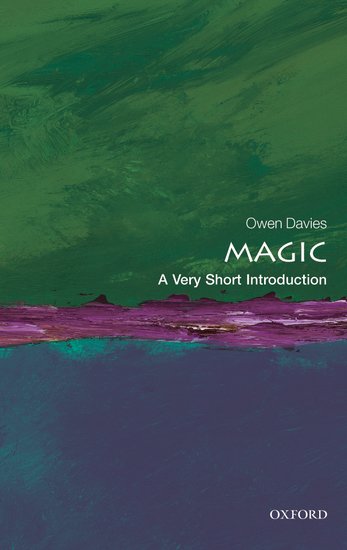Home >
A Very Short Introduction >
Modern Latin American Literature (History)
A Very Short Introduction | History
Modern Latin American Literature
ISBN: 9780199588022
Series: A Very Short Introduction
Modern Latin American Literature (History)
A Very Short Introduction Modern Latin American Literature (History) Media > Books > Non-Fiction > Education Books Expect Delays of Up to 4 Weeks| Order Below |
ISBN
9780199588022 (10-digit ISBN: 0199588023)
- Description
- Key Features
- Series Description
- Table of Contents
- A concise, argument-driven overview of modern Latin American literature
- Contends that Latin American literature emerged as a continent-wide phenomenon during moments of political crisis and transition, such as independence and the Spanish-American War
- Discusses the links of Latin American literature to European and American literature
- Analyzes the work of major writers of international reach, like Jorge Luis Borges and Gabriel García Márquez
In the 1960s, Latin American literature became known worldwide as never before. Writers such as Jorge Luis Borges, Gabriel García Márquez, Carlos Fuentes, Pablo Neruda, Octavio Paz, and Mario Vargas Llosa all became part of the general culture of educated readers of English, French, German, and Italian. But few know about the literary tradition from which these writers emerged. This Very Short Introduction remedies this situation, providing an overview of modern Latin American literature from the late eighteenth century to the present. Roberto González Echevarría covers a wide range of topics, discussing the birth of Modernismo, the first Latin American literary movement; how the end of World War I and the Mexican Revolution produced the avant-garde; and how the Cuban Revolution sparked a movement in the novel that came to be known as the Boom. Within this narrative, the author covers many of the major writers of Latin American literature, from Andrés Bello and José María de Heredia through Borges and García Márquez to Fernando Vallejo and Roberto Bolaño.
Oxford's Very Short Introductions series offers concise and original introductions to a wide range of subjects--from Islam to Sociology, Politics to Classics, Literary Theory to History, and Archaeology to the Bible.
Not simply a textbook of definitions, each volume in this series provides trenchant and provocative--yet always balanced and complete--discussions of the central issues in a given discipline or field. Every Very Short Introduction gives a readable evolution of the subject in question, demonstrating how the subject has developed and how it has influenced society. Eventually, the series will encompass every major academic discipline, offering all students an accessible and abundant reference library.
Whatever the area of study that one deems important or appealing, whatever the topic that fascinates the general reader, the Very Short Introductions series has a handy and affordable guide that will likely prove indispensable.
Please note: As this series is not ELT material, these titles are not subject to discount.
Introduction
Chapter 1: Poetry from Romanticism to Modernismo: Bello to Darío
Chapter 2: Nineteenth-Century Prose: the Revelation of Latin America
Chapter 3: Poetry from Modernismo to Modernism
Chapter 4: Latin American Fiction in the Twentieth Century: Regionalism to Modernism
Chapter 5: Latin American Literature Today
References
Further Reading
Index
In the 1960s, Latin American literature became known worldwide as never before. Writers such as Jorge Luis Borges, Gabriel García Márquez, Carlos Fuentes, Pablo Neruda, Octavio Paz, and Mario Vargas Llosa all became part of the general culture of educated readers of English, French, German, and Italian. But few know about the literary tradition from which these writers emerged. This Very Short Introduction remedies this situation, providing an overview of modern Latin American literature from the late eighteenth century to the present. Roberto González Echevarría covers a wide range of topics, discussing the birth of Modernismo, the first Latin American literary movement; how the end of World War I and the Mexican Revolution produced the avant-garde; and how the Cuban Revolution sparked a movement in the novel that came to be known as the Boom. Within this narrative, the author covers many of the major writers of Latin American literature, from Andrés Bello and José María de Heredia through Borges and García Márquez to Fernando Vallejo and Roberto Bolaño.
Key Features
- A concise, argument-driven overview of modern Latin American literature
- Contends that Latin American literature emerged as a continent-wide phenomenon during moments of political crisis and transition, such as independence and the Spanish-American War
- Discusses the links of Latin American literature to European and American literature
- Analyzes the work of major writers of international reach, like Jorge Luis Borges and Gabriel García Márquez
Series Description
Oxford's Very Short Introductions series offers concise and original introductions to a wide range of subjects--from Islam to Sociology, Politics to Classics, Literary Theory to History, and Archaeology to the Bible.
Not simply a textbook of definitions, each volume in this series provides trenchant and provocative--yet always balanced and complete--discussions of the central issues in a given discipline or field. Every Very Short Introduction gives a readable evolution of the subject in question, demonstrating how the subject has developed and how it has influenced society. Eventually, the series will encompass every major academic discipline, offering all students an accessible and abundant reference library.
Whatever the area of study that one deems important or appealing, whatever the topic that fascinates the general reader, the Very Short Introductions series has a handy and affordable guide that will likely prove indispensable.
Please note: As this series is not ELT material, these titles are not subject to discount.
EASY ORDER FORM
PRICES LISTED INCLUDE CONSUMPTION TAX
Price Before Tax:
¥1,790


